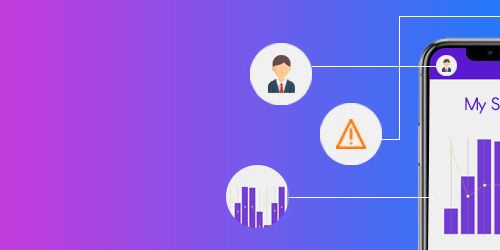Mobile App Scalability: Ensuring Your App Grows with Your Users

Voice Recognition: Transforming the Way We Interact with Technology
May 26, 2024
Understanding Custom ROMs
May 26, 2024Mobile App Scalability: Ensuring Your App Grows with Your Users
Mobile app scalability is essential for ensuring that your app can handle increased user demand, data volume, and feature complexity as it grows in popularity and usage. This article explores the importance of mobile app scalability, common scalability challenges, and strategies for designing and building scalable mobile apps that can adapt and thrive in a dynamic environment.
Thank you for reading this post, don't forget to subscribe!Understanding Mobile App Scalability
Mobile app scalability refers to the ability of an app to accommodate growth and handle increasing workload and demand without sacrificing performance, reliability, or user experience. Scalable apps are designed and architected to scale horizontally or vertically, allowing them to handle higher traffic, user concurrency, and data volume as they grow in size and complexity.
Why Mobile App Scalability is Essential
Supports Growth and Expansion
Scalability enables your app to grow and expand its user base, features, and functionality without encountering performance bottlenecks or stability issues. As your app gains popularity and attracts more users, scalability ensures that it can handle increased traffic and usage without experiencing downtime or degradation in performance.
Enhances User Experience
Scalable apps provide a smooth and responsive user experience, even under heavy load and peak traffic conditions. By ensuring consistent performance and reliability, scalability enhances user satisfaction and retention, leading to higher engagement and loyalty over time.
Optimizes Resource Utilization
Scalability optimizes resource utilization by efficiently allocating computing resources, such as server capacity, storage, and bandwidth, to meet changing demand patterns. This allows you to scale resources up or down dynamically based on workload and usage requirements, minimizing costs and maximizing efficiency.
Future-Proofs Your App
Scalability future-proofs your app by anticipating and accommodating future growth and changes in user behavior, technology trends, and market dynamics. By designing your app with scalability in mind, you can adapt and evolve it over time to meet evolving business needs and user expectations.
Common Scalability Challenges
Performance Bottlenecks
Performance bottlenecks can occur when key components of your app, such as servers, databases, or network infrastructure, become overloaded or strained under heavy load. This can result in slow response times, latency issues, and degraded user experience.
Data Management
Managing large volumes of data can pose scalability challenges, especially as your app accumulates user-generated content, transaction records, and other data over time. Inefficient data storage, retrieval, and processing can lead to scalability issues and performance degradation.
Concurrency and User Sessions
Handling concurrent user sessions and requests can strain server resources and impact scalability, especially during peak usage periods. Managing session state, session timeouts, and user authentication can become more complex as user concurrency increases.
Third-Party Integrations
Integrating third-party services, APIs, or libraries into your app can introduce dependencies and performance bottlenecks that affect scalability. Dependency on external services with limited scalability or reliability can impact the overall scalability of your app.
Strategies for Building Scalable Mobile Apps
Design for Horizontal Scalability
Design your app architecture to scale horizontally by distributing workload across multiple servers, instances, or containers. Use load balancing, auto-scaling, and distributed caching to handle increased traffic and workload dynamically.
Optimize Data Storage and Retrieval
Optimize data storage and retrieval to handle large volumes of data efficiently. Use scalable database solutions, such as NoSQL databases or cloud-based storage services, to store and manage data effectively. Implement caching, indexing, and partitioning strategies to improve data access and performance.
Implement Asynchronous Processing
Implement asynchronous processing and background tasks to offload long-running or resource-intensive operations from the main application thread. Use message queues, job schedulers, and worker processes to handle tasks such as data processing, image processing, or batch jobs asynchronously.
Monitor Performance and Scalability Metrics
Monitor performance and scalability metrics, such as response times, throughput, resource utilization, and error rates, to identify scalability issues and performance bottlenecks proactively. Use monitoring tools and analytics dashboards to track performance metrics in real-time and troubleshoot issues as they arise.
Plan for Elasticity and Flexibility
Plan for elasticity and flexibility by designing your app to scale up or down dynamically in response to changing demand and workload patterns. Use cloud-based infrastructure and services that support auto-scaling and on-demand resource provisioning to scale resources based on usage requirements.
Test Scalability Under Load
Test the scalability of your app under realistic load and stress conditions to identify performance bottlenecks and scalability issues before they impact users. Conduct load testing, stress testing, and performance testing to evaluate the scalability and performance of your app under various scenarios and usage patterns.
Conclusion
Mobile app scalability is essential for ensuring that your app can grow and adapt to changing user needs, usage patterns, and market dynamics over time. By designing and building scalable mobile apps that can handle increased traffic, data volume, and feature complexity, you can provide users with a seamless and responsive experience, even as your app grows in popularity and usage. Embrace scalability as a fundamental aspect of app development and architecture, and invest in strategies and technologies that enable your app to scale dynamically and thrive in a dynamic and competitive environment.
For more information: www.ecbinternational.com


